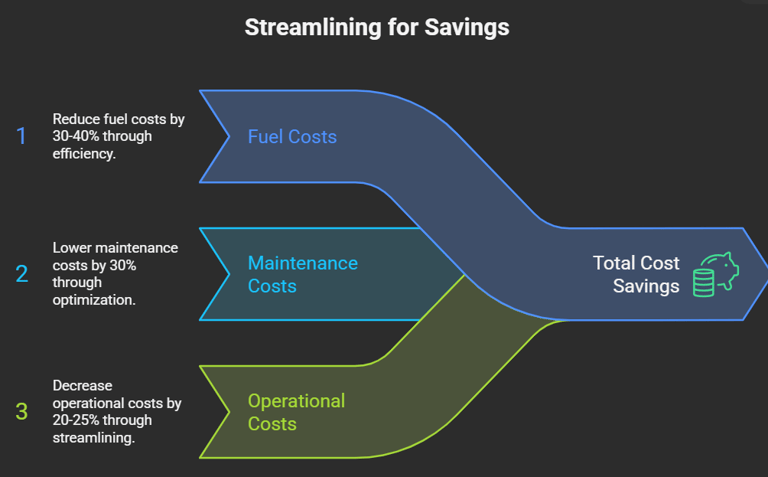Revolutionizing Warehouse Operations with Electric Forklifts
Revolutionize warehouse operations with electric forklifts—boost efficiency, reduce emissions, and enjoy cost-effective, eco-friendly material handling.
ELECTRIC FORKLIFTS
9/4/20257 min read
Revolutionizing Warehouse Operations with Electric Forklifts
Electric forklifts have brought euphoria in the choice of technology decision-makers in various industrial sectors as they outshine internal combustion engine (ICE) forklifts in almost every respect. The number one advantage that is also very easy to notice is the low noise that the electric vehicle produces.
While electric forklifts run much less noisily compared to gas or diesel forklifts, facilities such as warehouses and retail spaces that are closed and where noise is a problem, can benefit much from these machines.
This is a win-win situation for employees and the company as well since the noise reduction can be felt by the whole team, and working quickly and fluently via communication is made possible, thus yielding an increase in productivity.
Besides, one of the most important factors that set electric forklifts apart from others is the amount of maintenance required, which is dramatically less than that of electric forklifts.
ICE forklifts with their regular oil changes, muffler maintenance, and other mechanical servicing need are the opposite of this kind of electric forklifts that have less used parts and fewer maintenance works.
Practically this means less time and money are going to be spent on rehabilitation of the machines over a certain period.
In like manner, industrial electric vehicles enjoy breakthrough achievements in battery technology advancing longer durations of work between recharging periods which make these machines even more efficient and reliable when it comes to handling the required workload in the warehouses.
Key Takeaways
Electric forks are silent and do not emit gases, which makes them perfect for use in closed spaces. Besides, the use of such equipment lowers the carbon footprint of the warehouse.
Electric forklifts have low operating costs and require minimal maintenance as compared to diesel or LPG forklifts; the difference in savings will be realized in the long run.
Electric forklifts are, basically, ecologically more friendly in warehouse works, indeed, they make better use of energy through their rapid acceleration, accurate maneuver, and they can remain in operation for a long time on one single charging.
The part of tech inside the electromotive forklift is nothing less than an all-in-one battery system, the taking back of energy through brakes and a remote control for performance watch and regulation.
It is suggested that for a flawless turning of electric forklifts in warehouses, training of proper nature and observance of safety rules should be part of the routine ensuring operators' well-being and freeing maximum productivity.
How Electric Forklifts Improve Efficiency in Warehouse Operations
A warehouse can increase its efficiency in several ways, of which one is the use of Electric Forklifts. Basically, forklift's operability in hard-to-reach areas is just one of the ways they contribute to the overall effectiveness of warehouse functions.
For example, Forklifts that are powered by electricity usually have small designs, thereby, they are able to move in narrow aisles or tightly packed areas without much difficulty.
Such a characteristic is very suitable in warehouses where storage space should be used to the maximum.
Consequently, by implementing electric forklifts, companies are capable of both maximizing storage density and reconfigure their layout without compromising accessibility.
Besides, forklift powered by electricity comes with the most advanced technologies like the regenerative braking system which recharges the battery while braking besides dosing the energy necessary for the operation of the forklift reducing the energy consumption of the device considerably.
The ability to recharge during the run is between electric forklifts allows operators to carry on the work thus maintaining productivity levels with minimal breaks for battery charging if any at all.
In such situations where the demand for goods is very high and time is, therefore, very necessary the continuous operation becomes extremely essential hence the production processes are made to flow at a very smooth and fast turnover time rate occurs
The Environmental Benefits of Using Electric Forklifts
The concern over the environment is at the forefront of people’s minds when it comes to electric forklifts. The main attraction to these kinds of machines is especially the fact that it will not be harmful in their operation in any way.
The ones working on the internal combustion technology are the main sources of air pollution while electric ones are absolutely clean of emissions.
Besides, the elimination of pollutants can breathe life not only into the air inside storage facilities, but also into the environment locally since workers will be getting a healthier air in their lungs, needless to say, the communities that are located near the warehouses.
Such a beneficial energy transition towards electric vehicles is very much in trend nowadays with solar and wind energy becoming an increasingly popular choice for companies who want to reduce their carbon footprints by charging their electric vehicles.
By businesses going green with electric forklifts, they are not just meeting the standards but also adorning their brand with the kind of beauty that leads to better customer loyalty and makes them more attractive to customers who are concerned about the environment.
The Cost Savings of Switching to Electric Forklifts
Moving to electric forklifts is a smart step that in the long run will save a large amount of money for businesses.
The initial purchase price is usually higher, though, and long-term savings on fuel and maintenance costs will give businesses a return on their investment within the first few years. Electrically powered forklifts tend to have lower operating costs that stem from the relatively stable prices of electricity and volatile fuel prices.
This possibility gives companies the chance to plan their budgets more accurately and, at the same time, have better control over their everyday operating costs.
It is important to mention that the longevity of electric forklift batteries has been greatly improved over the past several years and many nowadays have the durability to bear higher lifespans and come with longer warranties.
This quality means the company will need to change the batteries less often which eventually will lead to more savings.
On top of this, a lot of electric forklift OEMs are open to providing financial help such as installment plans or rentals that can make switching less daunting for not only big but also small companies who like adopting this kind of technology.
The Technology Behind Electric Forklifts
Technology, leading to the electric forklifts radical evolution, has become the major advantage of these machines.
The batteries that power these vehicles have switched from the traditional lead-acid to the advanced lithium-ion ones.
And this change has brought a lot of good features such as higher energy density, fast charging, and lighter weight.
Rapid charging during breaks or shift changes allows the electric-powered truck to run without having to stop for a long time. Besides batteries there are other warehouse heavy-load machines improvements, like smart and connected one, for example, telematics devices.
Software that collects and analyzes data from the vehicle, keeps track of the battery and advises about the overall energy efficiency of the appliance.
By looking through this data, the warehousing staff can figure out better time slots for maintenance, better solutions for front-line workers’ skills acquisition, and better coordination of the overall distribution of fleets.
Apart from the basic function upgrades, the mere and subtle move to electric means a more data-driven and tech-advanced warehousing practice.
Training and Safety Considerations for Electric Forklifts
The bottom line is safety and training. Besides good work of the electric lift, hard work of the employees is the main factor for warehouse success. Operators are not provided only with hand-on training about equipment usage, but also they are explained how and why electric forklifts differ from traditional ones.
In seeking the changes caused by the low center of gravity approach, the operator should also be familiar with the handling and the maneuverability characteristics. Safety rules have to be also adjusted or modified to take into consideration the risk associated with electric-powered machines.
For instance, learning about battery care and charging practice that avoid electric shocks and fire hazards should form part of the operators’ training program. In addition, the engagement of safety officers and conducting more 'top-up' or refresher training is likely to create more employees who practice safety when they work.
Therefore, businesses that are committed to incorporating safety and training as part of their culture will be able not only to minimize risks but also to maximize the potential of electric forklift machines.
Case Studies of Successful Implementations of Electric Forklifts in Warehouses
There are a lot of success stories about companies that have integrated electric forklifts into their warehouse operations, demonstrating the advantages that are available through this shift. For example, a big retail distribution center located in California went through a seventy-six-forklift fleet upgrade from gas to electric.
As an element of its ecological commitment, the center had energy-saving electric forklifts installed throughout the warehouses.
Due to fewer fuel and maintenance requirements they have achieved energy savings of 30% within the first 12 months. Furthermore, the plant revealed that the staff had become more motivated as the noise level and air quality had improved.
On the other hand, a very interesting success story is about a manufacturing company that incorporated electric forklifts into its production logistics.
The adoption of the electric vehicles helped the company to mobilize the data collection process and went a step further to optimize the workflows by using the collected data.
This model for management results in a growth of throughput of 25% and, at the same time, lowers electricity consumption by 15%. These cases spotlight how funding in electric vehicle technology can be a major turning point for operational and economical problems, becomes easy to solve.
The Future of Electric Forklifts in Warehouse Operations
The future of electric forklifts in warehouse operations has a bright outlook as technologie continues to improve the industry landscape beyond recognition.
Work on new battery technology, including solid-state batteries that promise higher energy density and faster charging, continues at full speed which means that electric forklifts will become more and more efficient and dependable.
As the use of these technologies expands in a number of different sectors, we should expect environmental concerns to drive the adoption of more sustainable business practices that harmonize with their goals of operation.
Furthermore, as rules on pollution become stricter all over the world, companies will opt for electric forklifts in leasing their compliance with regulations while at the same time accomplishing their voluntary clean programs.
Furthermore, the fusion of automation and robotics into warehouse operations will be a cause of fewer constraints on the use of electric forklifts allowing them to take full advantage of the possibilities that the two fields create in terms of maximizing efficiency and productivity.
In the future, when we consider all factors, it will be apparent that logistics as well as warehouse operations inter-industry wise, will benefit greatly from the electric forklifts revolution that will be ushered in by electric forklifts technological advancements.


NewExcavatorsfor Sale
High-quality, compact construction equipment and attachments, including mini
Support
TYPHON Machinery Offices
2522 S Malt Ave. Commerce, CA 90040 United States
Blk 73, Geylang Bahru, #06-3062, S(330073), Republic of SIngapore
Phone Support
United States: +1 213-214-2203
Singapore: +65-88051086
Cambodia: +855-86719472
WhatsApp:
+1 323-532-5703
newexcavatorsforsale © 2025. All rights reserved.


